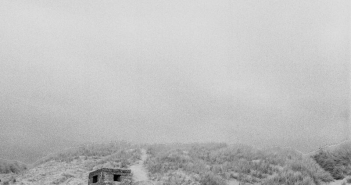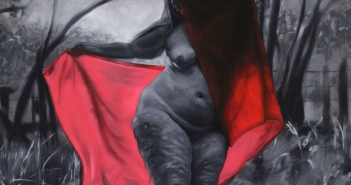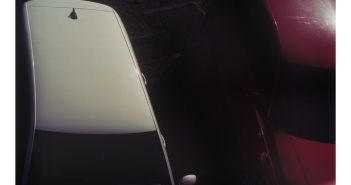This drastic, clean-cut deprivation and our complete ignorance of what the future held in store, had taken us unawares; we were unable to react against the mute appeal of presences, still so clear and already so far, which haunted us daylong … The plague forced inactivity on them, limiting their movements to the same dull round inside the town, and throwing them, day after day, on the illusive solace of their memories. For in the aimless walk they kept on coming back to the same streets and usually, owing to the smallness of the town, these were streets in which happier days, they had walked with those who now were absent …
And the narrator is convinced that he can set down here, as holding good for all, the feeling he personally had and to which many of his friends confessed.
It was undoubtedly the feeling of exile – that sensation of a void within which never left us, the irrational longing to hark back to the past or else to speed up the march of time, and those keen shafts of memory that stung like fire.
Albert Camus, The Plague p.60, 1947

‘Mood 1: Suspension’ from ‘The Timelapse’. (c) Letizia Lopreiato
Of trauma and of the exile from self and the world we once knew …
My handcrafted trauma therapy
I only recently got back to this book, and how strongly these pages resonate with my tireless work to bring to life my “Timelapse” project experience during this time of self-isolation. It has left me speechless. A poet left with no words, almost ironic in fact … These words truly have been marked by an imposed distancing from all things social so beloved to me, which is starting to feel quite painful at times whilst all these photos and all those words and all these memories have no other place for now, other than the walls of my apartment …
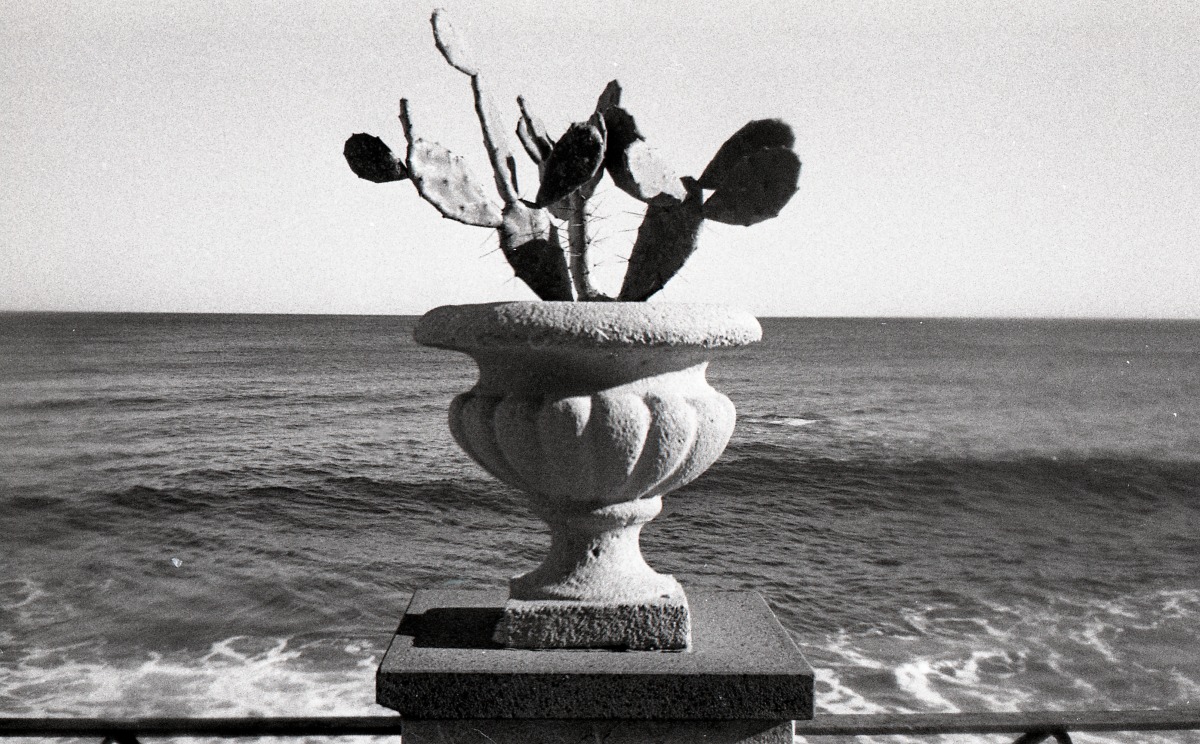
© Letizia Lopreiato
This book was left to me by a good friend, one of Dublin’s main characters if you ask me. He was working at “Dublin’s best kept secret café” as the signs says, right behind one of my favourite bookshop. Paco knew, I remember the first day I went there, I just felt his humanity. And so since then I came back every day, my refuge in time of pain and sorrow whilst traveling back and forth, at one stage even every week, and for over a year, in between so many spaces, so many memories … Paco knew I was exhausted but he also knew I had a story tell, letting me write, taking photos for hours in the garden. Always the same seat, by the corner, where it was safe for me to hide. One day he came to me with a flower and a glass of bubbly with a strawberry, a big smile, which would have cheered the entire city up. He just knew though I never told him what was happening. He knew now I know, because we have all, for one reason or another, from the ones we love, the ones far from what we knew as an anchor to our self, we have all been there, in that no man’s land that trauma throws you on. Like a massive wave it carries you to a foreign land. It is a shore, you just can’t see the rest of the island … yet. For many years the sensation of exile following the death of my father truly followed me too, just like the narrator in The Plague, until I arrived home. Ireland, Dublin, its magical people, its incredible feeling of community, allowed me to be present, to slow down, to feel my own thoughts. Thoughts that I have had for so long but that I could not hold the energy to engage with, it was like I couldn’t handle the intensity of them for so long, until when It finally felt like I had no escape from the awareness of them, if I truly want to make through it and still be myself.
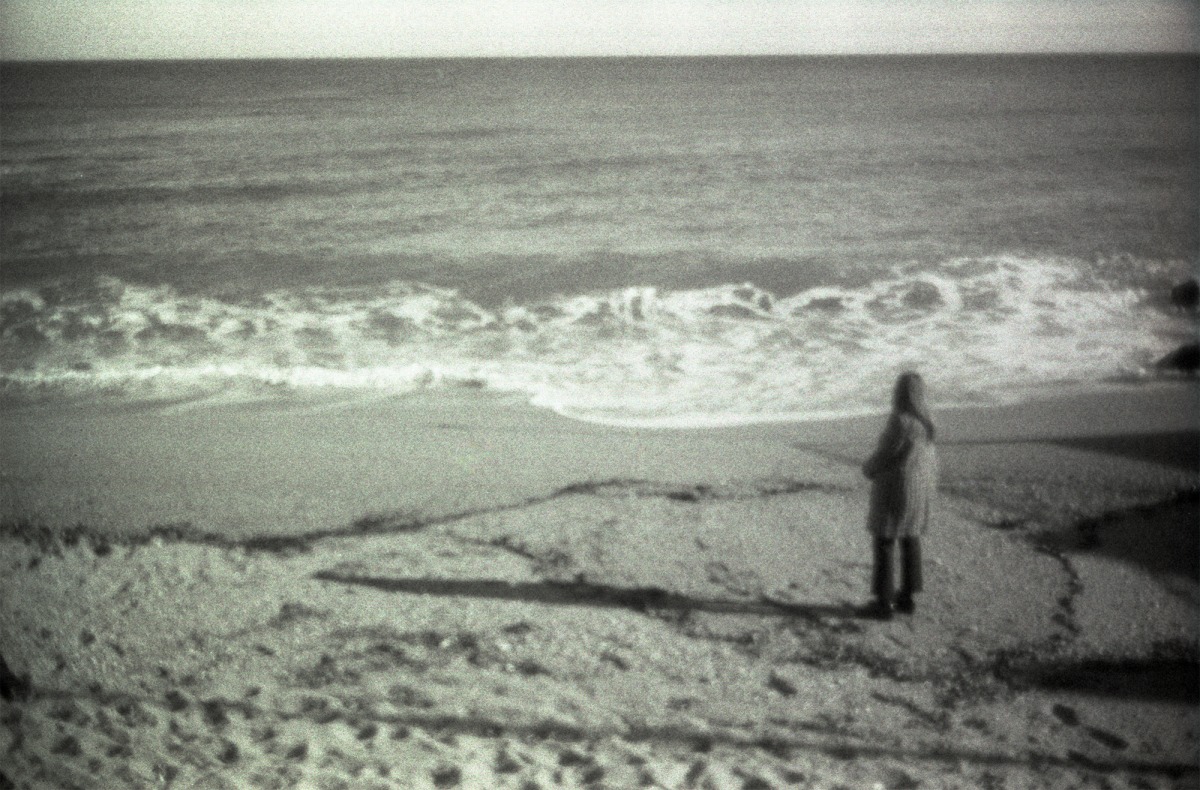
© Letizia Lopreiato
Paco left me this book the day before he left, after almost twenty years in Dublin, to return to his home town. A return I could never see for myself, as Ireland is already home, it truly always had been for me since I first came here as a kid to practice English. I just knew it was where I belonged, this magical land where healing is led by the creative force of its nature, if you only allow it to flow through you. And thankfully now my mum is here, she is back home too. Her healing began when she asked me for help two years ago, up to then she tried everything in her power not to “disrupt” my life she said. When the only thing I could have asked for, what I was waiting for, was for her to be ready to let me in, and be present. I have never seen myself as the type person living so close to their family, I always aimed to live abroad. I never felt at home in my country, never like I have always done here. But one thing is to choose not to, another thing is to feel you can’t reunite with what you feel as family, simply because trauma took it away, because the losses became unbearable, because the world you knew, the life you had, simply ceased, simply leaving you wondering around like a ghost amongst ghosts, haunted by the sensation of feeling betrayed by life somehow … Losing faith in the unexpected, in the positive, fearing any new beginning, perpetually condemned to relive that painful past, which is always so present, over and over again.
Love does not equal hurt, it might equal pain, so does life, because that is what life means, it makes us feel. The state of being frozen, collapsed in one’s own perception of constant risk, as if the entire world is aiming to hurt us sooner rather than later if we only allow it. It is that dimension whereby expressing feelings equals weakness, the “better be numb and selfish” mentality, rather than admitting we still feel too hurt. When we think nobody cares anymore, as everybody moved on, somehow, with their lives. Everybody but us … It is hard to dismantle false beliefs, put there to protect us in the first place, when by nature we are drawn to think firstly of all negative possible consequences to our actions. We are animals after all, and nature is something to be feared, the unexpected is a threat, and it can only be fought back, by staying constantly alert.
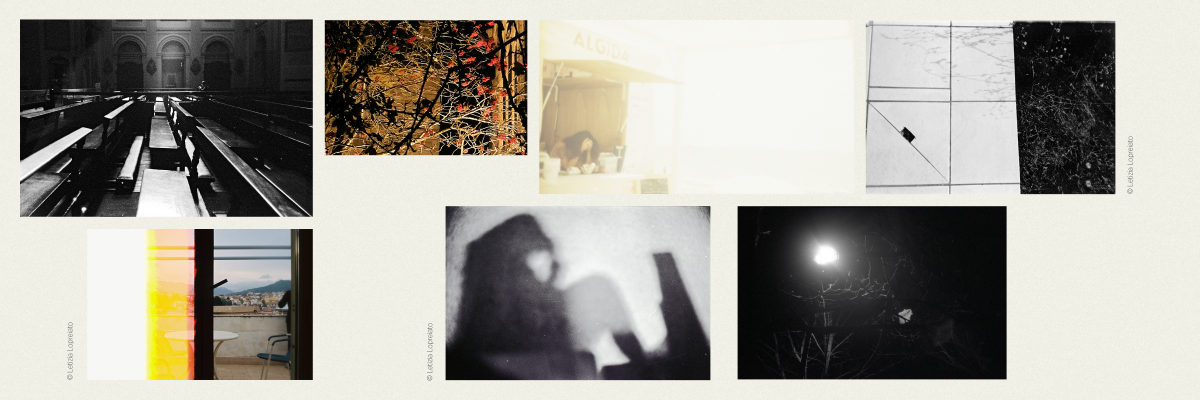
‘Mood 2: Anxiety’ from ‘The Timelapse’. (c) Letizia Lopreiato
Getting out of the hole in which we stick ourselves in whilst experiencing trauma, and where we ourselves decide to remain even after the event, is because of the self-complacency bubble, the of victimhood, which is way too easy to live in versus the admission of being always able to save ourselves, which does requires effort, accountability and above all which involves the need to learn (or to learn again), to be response-able.
It might be not what we really want to do what matters in this case, to me at least, it has been more a case of, “did I really feel like leaving that state”, and for this, timing is crucial and it is different for each and every person.
In this story, I needed to reach rock bottom, and so did my mum, to realise, to feel, that we weren’t betrayed, that trauma has always been there as the most precious healing opportunity, in its pain and apparent unfairness.
And so surely this is a long way of saying, the way to healing, it requires a choice, and this choice should be recognised as growth, and not as threat, it requires awareness, and awareness to grow, it needs a fearless space, which can only be built through gentleness, compassion, self-love and loads of self-respect, for our need for safety and security, to finally be met. Because fear means resistance, and within resistance, change is nor recognised as growth, but a self-inflicted pain, chaos, anxiety, which becomes the only comfort zone.
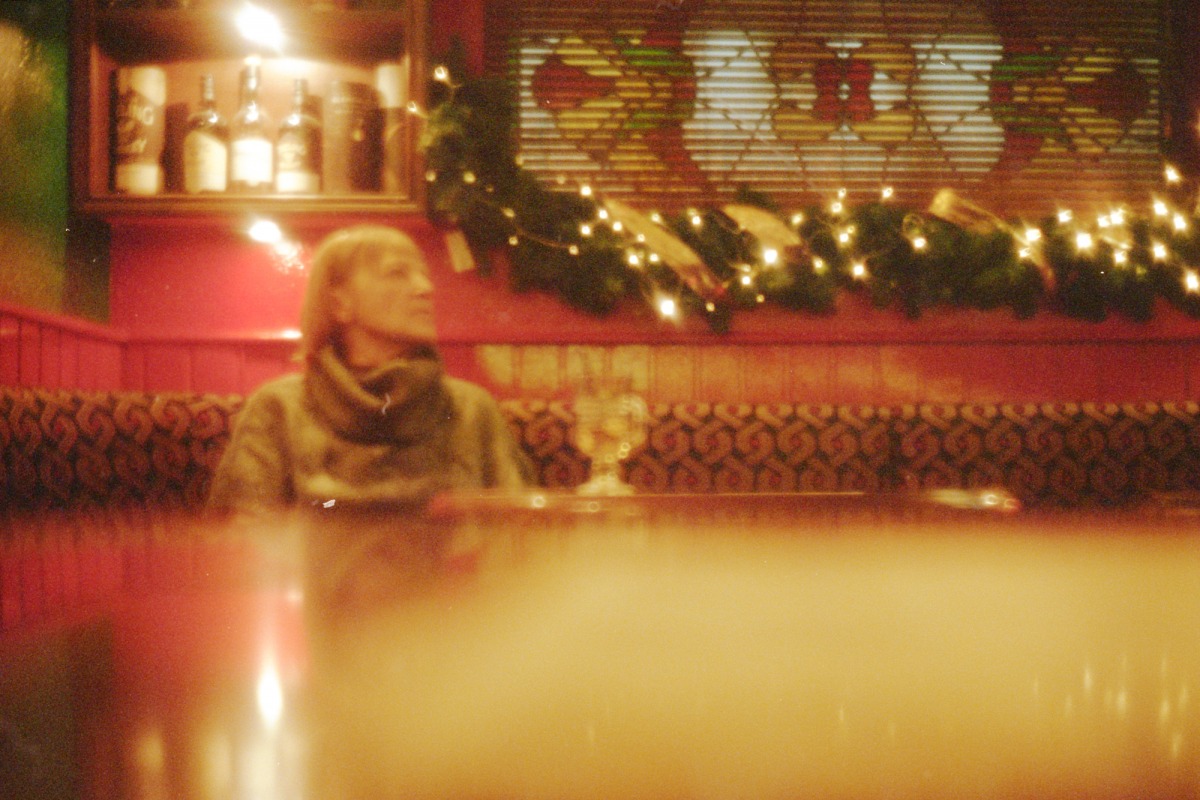
© Letizia Lopreiato
It is possible to rewrite our story, at any moment, anywhere you are. And each and everyone’s story is always different, but that is the thing, this is not a competition about who had the worst in life. And I won’t go into the details of what exactly happened to me because it is not what I believe the value of sharing this experience is. This is just one experience, one story, which has been sitting in my room making me almost unable to breath properly at night when looking at all those photos hanging on my wall. Every day, I have been reliving the feeling of all those memories, It wasn’t pleasant, but I knew it was “a storm I had to face” to find my land, to find peace. Writing this piece, I have started reflecting on why this was happening, and what this creative process has meant for me. Reflecting on where I stand now after all this, and why I was resisting looking at how this crisis, this storm, changed me and led me to feel love again, to open my heart again.
I was risking stagnation, the elephant was not even just in my apartment, it was sitting on my chest wherever I was going before I embraced this experience and let it flow through me … My shadow was there, asking me to look at it and become friends. And so I did, I befriended my demons, I accepted my shadow, and now I am at peace. And my mum is on her way to heal too, embracing the last phase of her life, leaving the sensation of shame, of guilt, of abandonment that trauma shuffles you with when not explored, when not embraced.
This process to me, the one of embracing my shadow, as my dear Jung would have defined it, it has been the highest lesson that self-love could have led me to.
And I did it through art. Art for me has not only meant survival, art has brought meaning to my life, without which in all likelihood, I would not be here to tell this story.
My mum is now starting her first ever art therapy course, as well as her English classes, encouraged by how therapeutic this project has been to her too. Her reactions passed from outburst of irritation, to laughter, to surprise when looking at herself in this project’s photos. Hanging on my walls for the past month and a half since lockdown started, there are the photos of the incredible journey within of two women, out of their roles of mother and daughter, two friends, coming back home, home to themselves, and to one another.

‘Mood 3: Grief’ from ‘The Timelapse’. (c) Letizia Lopreiato
A journey of self-healing, of self-empowerment.
If we would only choose to be present, to gift our time when we sense discomfort, within us and in others, if we would only train our hearts and our minds to hold that space, the space needed for everybody to share their stories of difficulty, of pain, of trauma, of guilt, of shame even … This world would be a better place, a place for empathy, a place for self-acceptance and for truth, rather than a comfortable fiction dimension with “positivity 24/7” as one solution fitting all purposes.
We have our own unique narratives. But it is important always to keep in mind that history is shaped by those who tell the story.
So why not being ourselves, to tell our story? To share our truth? To reshape our narrative?
“Nobody better than you could depict your feelings”, John Gunn, another Dublin’s icon if you ask me, once told me to encourage me to start taking photos of myself in order to portray my poems. This was instead of my original choice to find a photographer for this purpose.
In Trauma Therapy from a somatic approach, we study that in order to heal from trauma, what needs to be guided is a work reconnecting one’s images, feelings, meaning, expression, actions and relationships. This is because of the disconnection that trauma creates, and which fractures one and / or many of these links.
If you would ask me what photography helped my mum and I with, I would tell you:
Using photography along with poetry and reflective journaling, helped the reconnection through images, of the meaning of our feelings, to find a reason and closure for our actions, and even for the hurtful actions of others. It allowed us, to give ourselves a path towards forgiveness.
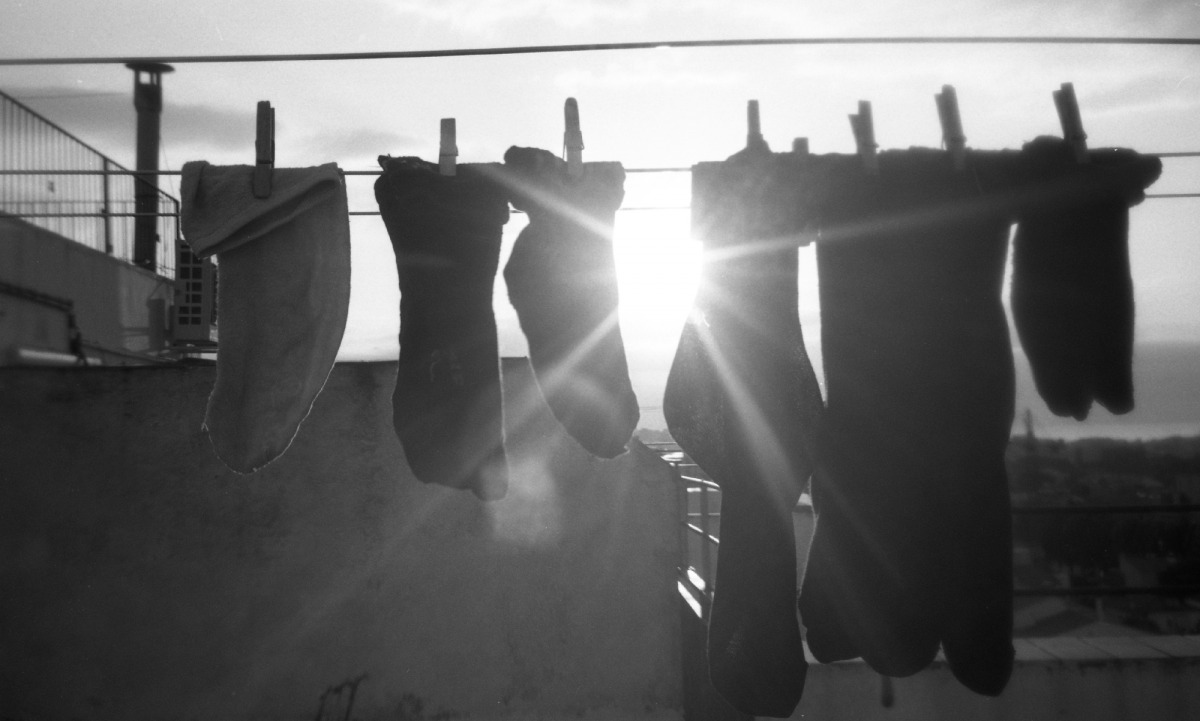
© Letizia Lopreiato
It has represented a free form of expression for our relationship with ourselves, with what happened and with one another.
Art in the form of what I call “my handcrafted art therapy during lockdown”, truly allowed for this reconnection to start happening.
This film photography and poetry project, titled “The Timelapse”, is the result of the last two-and-a-half years of documentary work, which felt more like an exploration, and a deep dive into the experience of trauma, bereavement and all its consequences for the mind, the body and surely the spirit.
The consequences created by the unexpected sudden void which opens under our feet when death knocks at the door. Death, as well as love, triggers within us the more primordial fears, but also the most shining of all glimmers: the one of hope, the one of happiness, the one of that on-going learning process that is the letting go of what has already happened, and which is no longer with us.
No matter how long we feel we should wait and hold on to the memory of it, how long we feel we should do so, to honour its prior existence … It is a call for the acceptance of the inevitable change that is the jump into the unknown after the experience of loss that has to be embraced to start healing. That beginning of a new cycle in life, where, luckily, everything has already changed, us included, no matter how long it takes for us to admit that.
We grew. We evolved. It was painful, it was harsh, but it did happen. No matter how long we chose to numb ourselves for, by trying not to look in that mirror. Trauma equals change.
Trauma is that breaking point, for the no-return to the ones we once were. In its toughest form and shape it is the deepest of all lessons, it is there for us to learn, once and for all, to avoid stagnation.
Resistance to the inevitable change that trauma imposes translates into stagnation for the spirit, for the mind, an intoxication for the body, that is desperately trying to follow up with a mind that can’t fit the memories of the experience anymore into any of the drawers which once were so orderly, storing the reality we knew before the event. It is a shock to our system.
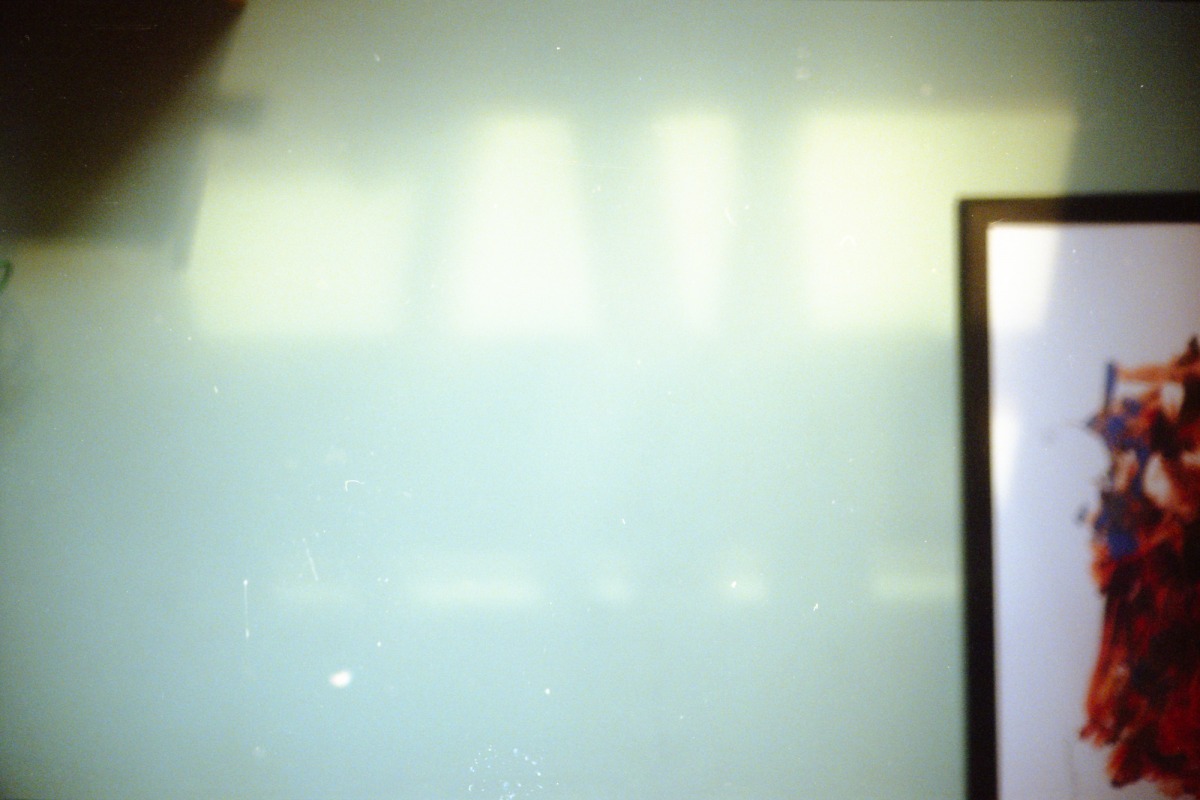
© Letizia Lopreiato
About this project and my creative process:
The Timelapse – Its digital launch and release during lockdown
View this post on Instagram
This project and deciding to finalise and release it during lockdown anyways, with a digital launch instead of a physical one originally due at The Darkroom, here in Dublin, on April 30th, for Poetry Day Ireland, it was surely a journey of exploration for both myself and my mum.
A deep dive into the the ocean of those memories which truly didn’t fit with any of own or my mum’s drawers anymore. The cabinet of our hearts and of our minds needed to create a new filing system. I write poetry in outbursts, an uncontainable impulse, I feel it as a real need for me to maintain my mental health, rather than an aesthetic exercise. Only recently I started remembering what I write, and this I believe happened because the work of matching poetry with photography allowed me to finally reconnect my mind, my heart, and my spirit.
Before starting using film photography, I used to write, fill diaries with my poetry, and never open them again. Almost like my poems were truly some little creatures which I was growing until they came of age when they could be let out and about in the world and out of my mind.
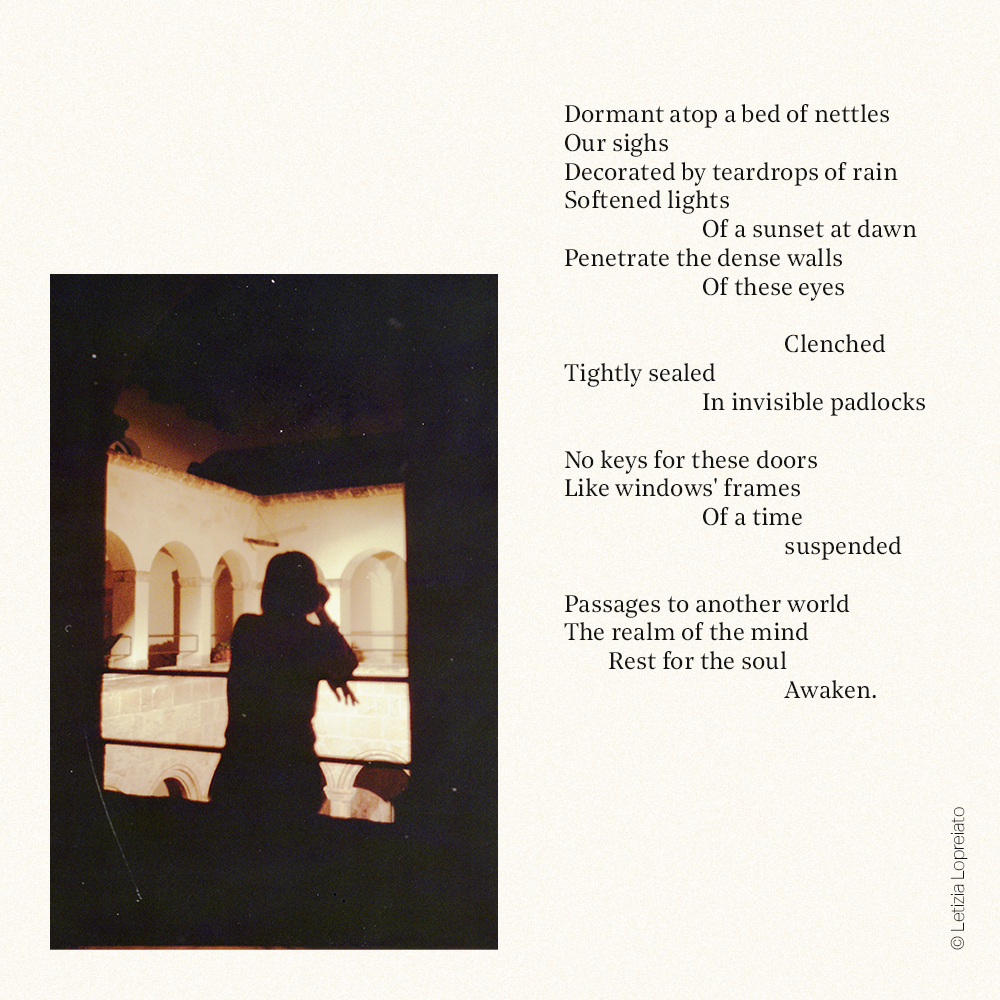
‘From the Front’ from ‘The Timelapse’ (c) Letizia Lopreiato
I only now realise that I wasn’t taking proper care of them once I released them into the world though, I have realised this now through a deep self-love journey, that I was probably scared of them somehow, scared to see what parts of me I was releasing into the world, scared of what they truly meant to me. Of what they have been representing of me. Basically I realised that there is a lot of “fear of self” in the mere fact of not wanting to be fully accountable about my own art and in not having wanted it to become a final product until now, an independent creature.
I have realised I was afraid of losing control of my own fears, my deepest and most guarded secret instincts. A fear that my sensitivity will not be protected if it is released into the world. It was fear and guilt about creating my own Frankenstein, releasing it into the world and then abandoning it with no protection in front of it, to be accepted in its diversity.
A fear I released fully and substituted with love and respect for myself and for my own creations during lockdown and thanks to this experience, and to all who supported me and believed in me and my art.
I am thankful above all, greatly thankful to life for having granted me this healing space and time.
In fact, I didn’t quite understand why It felt so natural since the very first photo I took with my one and only film camera, for me to feel the actual action of turning what I see and sense into an actual tangible creature which finally was freed from my mind.
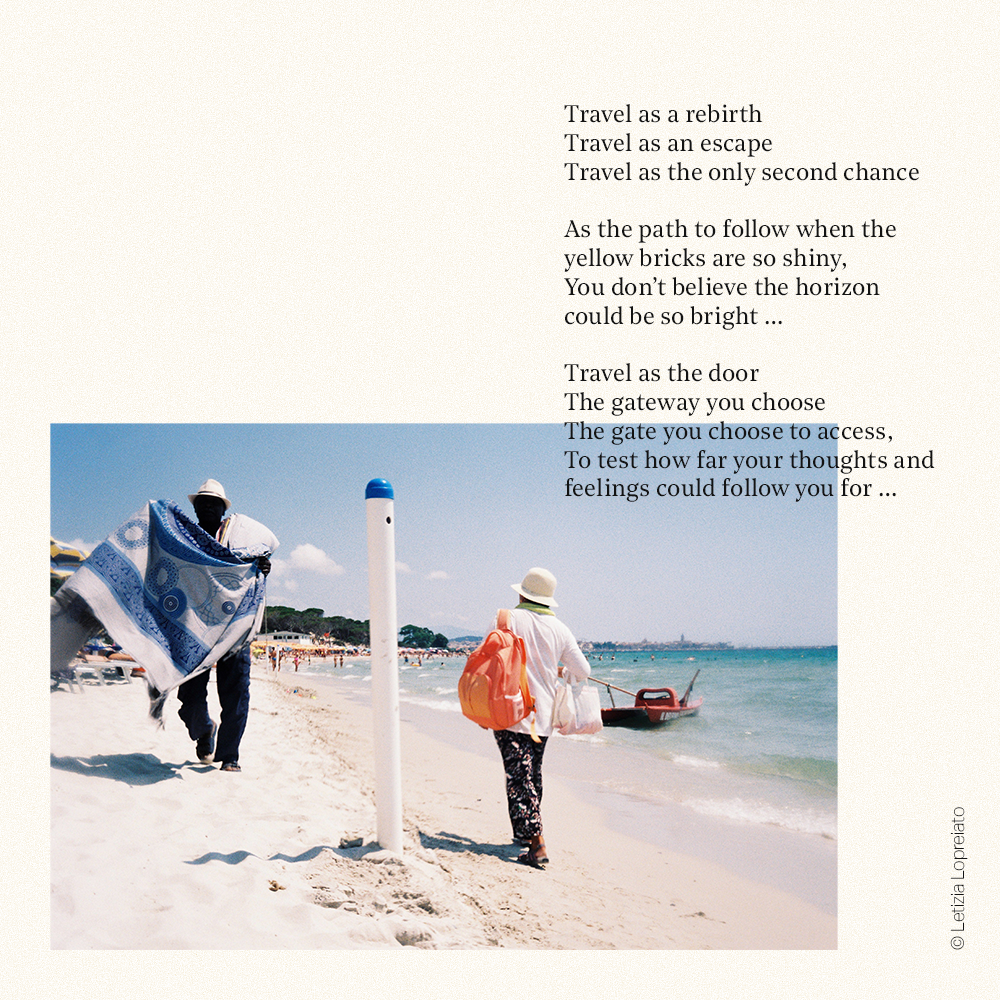
‘When Travel Means Need’ Part 1, from ‘The Timelapse’ (c) Letizia Lopreiato
The creative process is like alchemy to me. It feels like alchemy. The transmutation of what once was mainly painful and almost unbearable, into light, into meaning, into a being which has a life of its own, for anybody who would like to take it by the hand and go for a walk with it, in the midst of their minds, their hearts, their spirits. It will be a companion for their journey, wherever they would like to be, whenever they might feel like it. It is and will be, always available, just like breath.
Photography has allowed me to understand, to slow down, always to look with the eyes of the heart, at a manageable pace, the one of the human being, the one of a creation which is and has to be one with nature to feel whole.
Any distance, any avoidance of that space we need as animals by default, deep within us, to hold understanding of our actions, based on the feeling of it, it translates into a disconnection which we can’t afford. Playing the disconnected ones leads us to not being held accountable not even to ourselves, for our actions, for our words, because if we feel love, we feel pain, we feel loss, we feel it all. Soon it is there to realise that this which seems to be an easier option, always comes at a price, but that whoever loves and cares for us will be the ones paying it, paying the price of our disconnection.
And if one thing, death, loss, or any trauma in itself, does teach anything, it is that being selfish in this journey means more pain, it means more death, it means more losses, and it means stagnation. It is the emotional resistance to the experience of a change that in our body, in our cells, in the chemistry of our being, has already happened that feeds the disconnection.
It is the way I liked to see it, and unfortunately I have learned the hard way, it is paramount to need to release the water, our emotions, to follow its flow. Because only water can carve mountains.
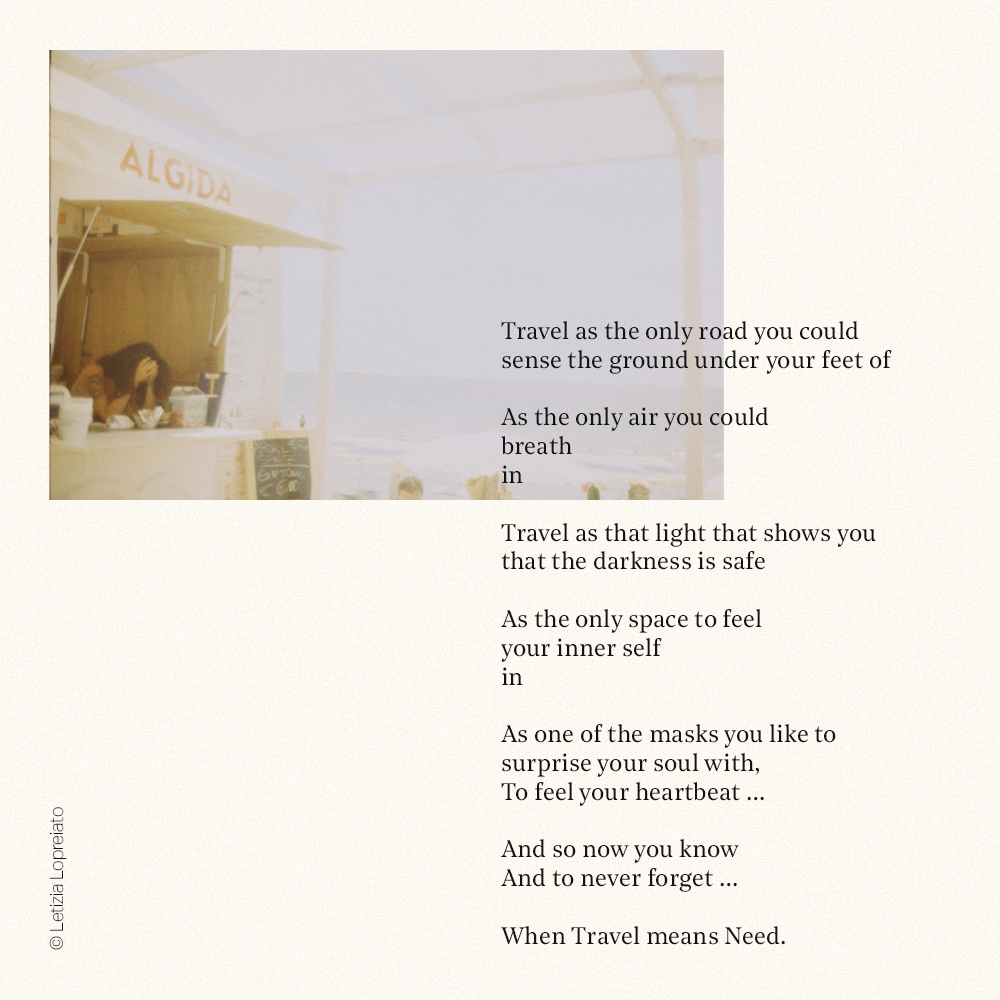
‘When Travel Means Need’ Part 2 from ‘The Timelapse’ (c) Letizia Lopreiato
PTSD, depression, anxiety, loss, death, the experience of bereavement itself, both experienced first-hand, as well as lived through the experience of my loved ones, only represented for me the desperate call of my heart to find home, to go back to its true identity, which I had to bottle up to feel safer. Just like we all do. Photography along with poetry and creative writing journaling filled the walls of my apartment now turned into an art studio with photos hanging on almost every wall, and filled the walls I had built within as well. The difference is that now, I can see it, I can see those walls, and they are not within me anymore.
At the highest stage of the disassociation that trauma had left me with over the past decade, I was almost feeling like I was creating different movies. In every city, evert country, every job I chose to engage with … Experiences that now feel like belonging to different lives, many different movies, that you almost can feel like you wanted to switch from or watch again, to jump in and out of the memory of them without being overly impacted by it as you were living with them in a detached way, to protect yourself, but that is not life. That is surviving. Survival mode made a life style.
It really is not fiction though, and eventually the realization that all those movies would be looking better as one, and that you truly need to find and hold the space within yourself to sit, and watch it all. You need to feel it all, as your own. Because it represents you, and there can be no shame, no guilt, no fear anymore, because you have always had a choice, to leave behind the victim’s cloak. And you do this with compassion, kindness, self-love and self-respect, whenever you have felt ready for it. Whenever you truly felt at home again, whenever you can trust that out it is safe out there again for your needs to be met, for your voice to be heard, for your feelings to be truly “seen” and welcomed.
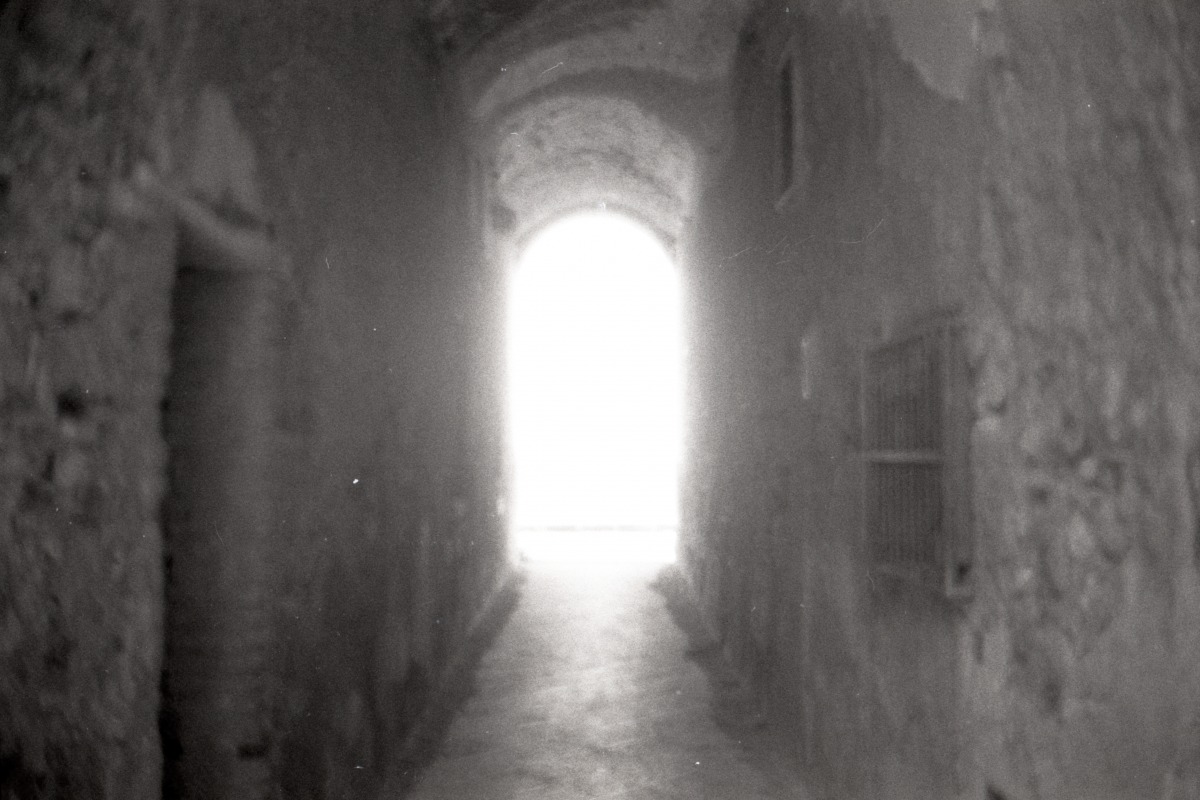
© Letizia Lopreiato
To experience the fear, to feel the pain, and to find freedom, once again. To be at one with yourself, and with all that is around you. Because independence does not equal loneliness and others can and want to be there and meet our needs, with patience, with time, with real love, with genuine care, if we choose to let them in. All levels of trauma, from childhood to adulthood leave us with the feeling of not being able to choose a way out. Being gentle with ourselves and one another, doing all in our power to show empathy, to feel tolerance, to experience connection as many times per day as we can. Write down the sensations, carry a diary, note it down on your phone, just remember, remember what it feels like to be present, once again. Out of your mind, into your body. There is always time to breath.
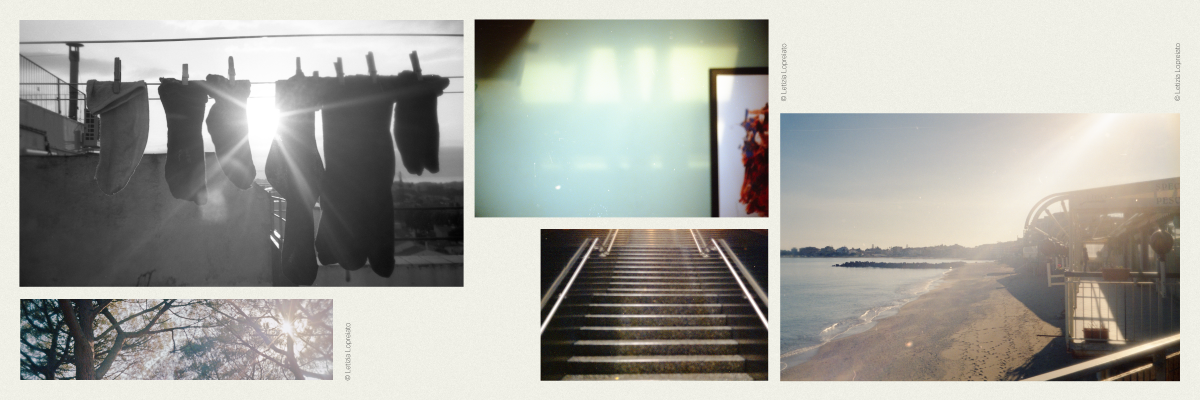
‘Mood 4: Suspension’ from ‘The Timelapse’. (c) Letizia Lopreiato
How did I know I found home back to myself?
I was given my one and only film camera, just a few months after I was detected with an untreatable retina condition, sometimes the universe truly has to kick you hard to set you back where you are supposed to be, where your strength truly lies which is there to be tested …
The same person who gave me my camera, also introduced me to his family by saying “She is a poet”, not with my job title, not by what I do, but by focusing on WHO I AM. He has been seeing who I am all the way through, and that was it for me. I was home. I was home because I couldn’t, I didn’t have to hide anymore. That moment represented for me the breaking point in my life and I can only see now it took me three years, three years this week in fact, to accept this transition within me. It was the first time in my life that I have felt my sensitivity was and always would have been protected. My sensitivity, my art, was seen for what it is, my truth, my identity.
Since then I have always felt, at the right place, at the right time, doing the right thing, as an artist.
With light and respect,
Letizia Lopreiato June 2nd, 2020
Featuring Image:
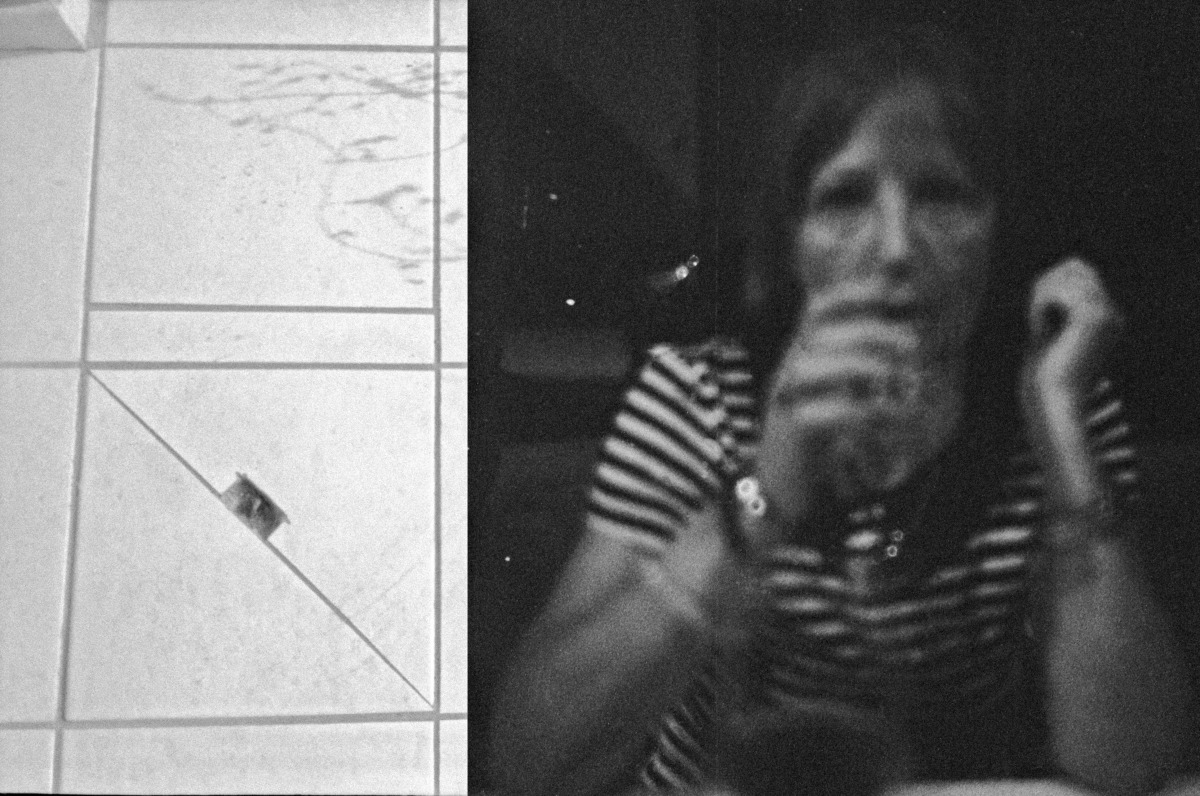
Interruption – The Missing Peace: This work aims to represent what grief meant to my mum and I, the way I felt this process has been perceived by the people around me too. An interruption, the missing peace … It was to my eyes that void which opens up beneath our feet, in our stomach. That fracture suddenly claiming its space. That gap which we need to learn how to walk around on, and make our own, as it is now part of the landscape. © Letizia Lopreiato
instagram.com/letizia_lety_lopreiato/
These below are some references for the curious minds, to my learnings in regards to the perspective I gained whilst researching on trauma therapy, from a somatic psychotherapy approach:
- The Polyvagal Theory, Neurophysiological Foundations of Emotions, Attachment, Communication, Self-Regulation (2011), Stephen W. Porges, published by W. W. Norton Company, NY, United States
- The Pocket Guide to the Polyvagal Theory: The Transformative Power of Feeling Safe (2014), Stephen W. Porges, published by W. W. Norton Company, NY, United States
- Clinical Applications of the Polyvagal Theory: The Emergence of Polyvagal-Informed Therapies (2018), Stephen W. Porges and Deb Dana, published by W. W. Norton Company, NY, United States
- The Polyvagal Theory in Therapy, Deb Dana, published by W. W. Norton Company, NY, United States

